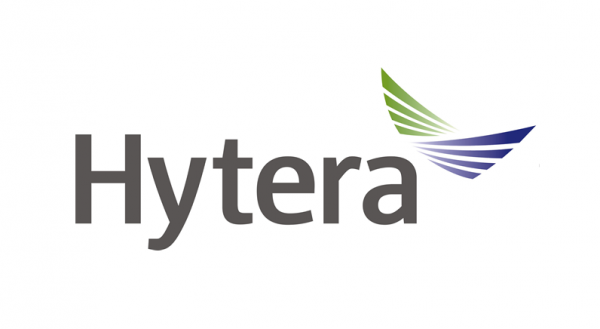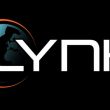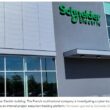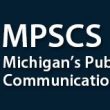U.S. Trustee calls for dismissal of Hytera bankruptcy case, blocking sale of company’s U.S. units
A United States Trustee yesterday recommended that a federal bankruptcy court in California dismiss the Chapter 11 filing by U.S. divisions of Hytera, which would block the proposed “compromised” sale of the business units to a new subsidiary of Hytera for $9.5 million later this week.
Peter Anderson, the U.S. Trustee for Region 16, submitted the dismissal position yesterday with the U.S. Bankruptcy Court for the Central District of California, where Hytera America and Hytera Communications America (West) filed for Chapter 11 protection on May 26.
These two U.S. business units of Hytera—referenced as the “Debtors” in bankruptcy legal filings—are scheduled to be sold for $9.5 million to new subsidiary Hytera US on Thursday, unless Motorola Solutions’ motion to dismiss or suspend the case is granted.
Anderson, who leads the U.S. Trustee program that is a component of the U.S. Department of Justice, expressed his support for dismissing the bankruptcy cases for the existing Hytera U.S. divisions.
“The motion [for dismissal requested by Motorola Solutions] should be granted, and these cases should be dismissed,” according to Anderson’s filing, which also notes that “if this court declines to dismiss this case … abstention is also warranted.”
Sources familiar with the case have told IWCE’s Urgent Communications that no alternative bidders for the Hytera U.S. divisions have emerged, so last week’s scheduled auction for the assets of the Hytera U.S. divisions was not conducted. As a result, the lone bid for the Hytera U.S. divisions was the $9.5 million offer from the new Hytera US subsidiary of China-based Hytera Communications.
Attorneys for Motorola Solutions have described the proposed sale of the U.S. divisions to a new subsidiary of Hytera as a “sham,” arguing that the bankruptcy process is an effort to avoid paying the $764.6 million in damages awarded by a federal court for Hytera’s improper use of Motorola trade secrets and copyrighted software in many DMR products. The same federal court is still considering a permanent injunction that would prevent Hytera from selling the problematic DMR offerings worldwide.
Motorola Solutions has asserted that the Hytera U.S. divisions could attract additional bidders after the federal court rules on the injunction. Until the injunction situation is clarified, potential bidders will not make an offer for the Hytera U.S. divisions, because they would not know whether they could sell the popular DMR gear, according to Motorola Solutions’ legal documents.
In his filing with the bankruptcy court, U.S. Trustee Anderson states that the Hytera U.S. divisions’ “purpose for filing these cases appears unclear at best and nefarious at worst. The timing of the Debtors’ filing of these cases indicates they sought to avoid the filing of a bond to stay enforcement of the judgment against them.”
Anderson indicated his agreement with several key arguments made by Motorola Solutions to dismiss the Chapter 11 bankruptcy cases filed by the Hytera business units located in the United States.
“The bankruptcy system was not designed to enable debtors who have engaged in theft to file bankruptcy and to continue to profit from that theft and cleanse themselves of their wrongdoing through an illusory sales process,” Anderson states in his filing. “But that is what the Debtors are attempting here.”
Anderson’s filing states that the Hytera U.S. divisions filed for Chapter 11 protection after the federal-court jury found that Hytera stole Motorola technology, but Hytera has continued to sell the DMR products using the “misappropriated technology” anyway.
“Just days before these bankruptcy cases were filed, the Debtors’ parent company set up a newly formed corporation to purchase the Debtors’ assets and to hire all of the Debtors’ employees who would continue to work out of the same location—despite the jury verdict,” according to Anderson.
“The Debtors’ goal appears to be to have their parent company continue operations in the United States without regard to the jury verdict. The Debtors used the automatic stay not merely to stop the enforcement of a monetary judgment, but as a safe harbor to continue to engage in the improper use of Motorola’s technology.”
Anderson also expressed concern about the relationship between Hytera Communications—the China-based parent company of the U.S. divisions seeking bankruptcy protection—and key officials that were responsible for overseeing the bankruptcy sale process.
“Although the Debtors hired an independent director and investment banker, the Debtors failed to wall off communications between the Debtors and their parent company, Hytera China, with respect to the sale process,” the Anderson filing states. “Further, the Debtors’ investment banker agreed that waiting for the scope of injunctive relief to be determined could generate additional bidders and higher bids, but it was directed by the Debtors to sell the company as is.
“Moreover, there are a multitude of issues regarding the conduct of the Independent Director; the U.S. Trustee will address these issues in a separate objection to the Debtors’ sale motion. Based on the forgoing, the integrity of the sales process has been compromised.”


















Can anyone explain what “features” Motorola says Hytera stole? I thought DMR was a “standard.” This is a sincere question. I’m not bashing or supporting any one entity. I have followed this law suit and it is my understanding Motorola did not disclose what patent infringements were made. As a tax payer who’s money supports public safety, I’d like to know .